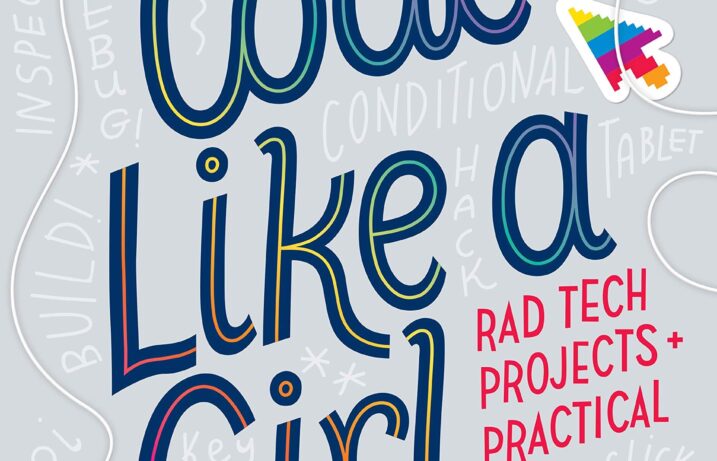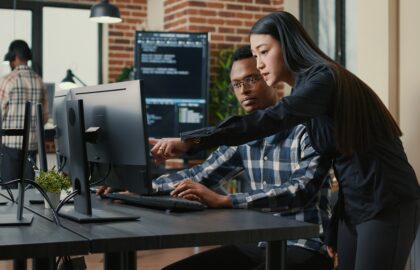While anyone can code, many have felt excluded from pursuing their interests. We hear about the “bro culture” of tech and the initiatives for women in STEM. Miriam Peskowitz, bestselling co-author of “The Daring Book for Girls,” knows what it feels like to be an outsider. Whether it was being among just a handful of women in graduate school or how her own daughters lost interest in tech, Miriam drew on that inspiration for her latest book, “Code Like a Girl.”
Miriam enrolled in Flatiron School to learn how to code for herself. In the interview below, Miriam shares her inspiration for “Code Like a Girl” and how you can too.
Your previous books focused on, in your words, "Women's work. Equity and fairness. Disciplines of knowledge." How did that previous focus lead you to tech and code?
You get to a certain point and realize that every creative thing you’ve done has been chasing the same idea. I really want to make space for everyone who hasn’t been in tech. Going to Flatiron School has been amazing because our school has thought through so much about how to do this.
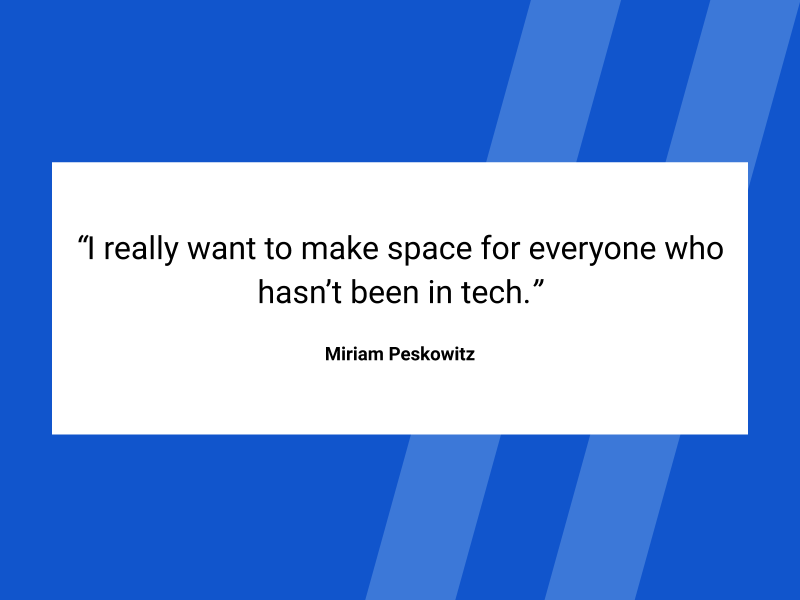
What are the barriers preventing girls and women from participating in STEM?
-
The history of how so many recent tech leaders and coders have been men
-
The sometimes macho tech culture
-
The way coding has become a “guy thing” and that means that some girls and women won’t even look at it
-
Overt sexist messages that push girls away
-
Overt harassment
The good news is that this isn't all that different from other professions and fields, including many that used to be predominantly white and male and over the years have become more integrated.
What was it like to learn to code as a beginner? What languages did you learn? How did you go about learning new languages?
To write the book I had to learn a little about a lot of things, and then figure out the magic of putting them together.
Step 1 was to take lots of Girl Develop It workshops. Philadelphia had a very active chapter. I learned everything from How the Internet Works, to Intro to HTML and CSS, to JavaScript, to Algorithms.
Step 2 was to learn about breadboarding, and I did that at a maker space called the Hacktory. I learned a bit of Python on my own, and my friend Meredith helped me. I fell in love with code. The book's first deadline was a very quick nine months after I started. While I was mad-dashing all this, I decided that as soon as the first draft of the book was done I’d start learning to be a full-stack developer, for real. That’s where Flatiron School came in.
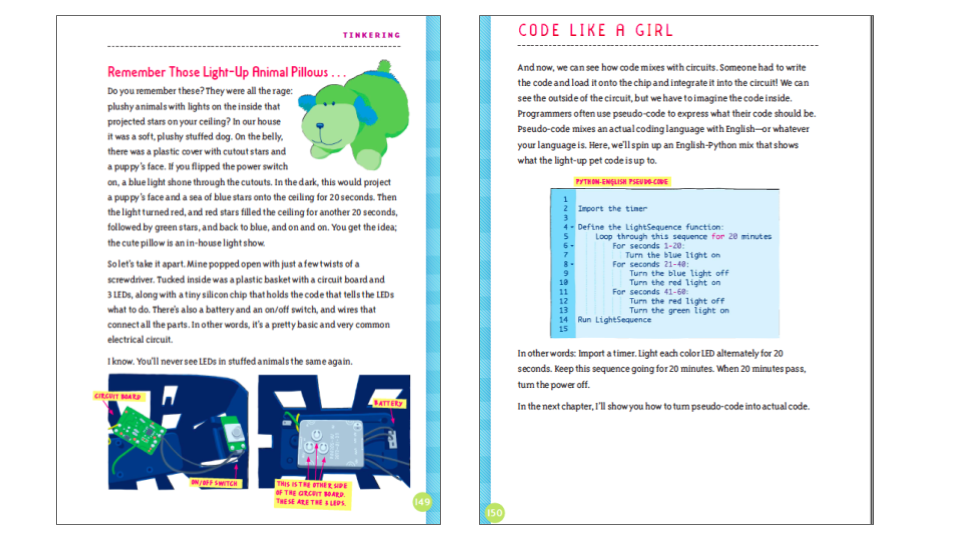
What was your experience like at Flatiron School?
It’s been so great. I’ve been in for a while, because I balanced it with working on all the edits and design for the book, and rewrites, oh, and I have a family too. For me, I love how the Tech Coaches are encouraging and non-judgmental. I finished my CLI project, it was about choosing a morning meditation, I signed up for the evaluation and then I freaked. All of a sudden, I realized I was actually in school, and there was a test coming up. Then I re-read the description and relaxed. Flatiron School's model is about learning, without the trauma of traditional school.
What was your breakthrough, or "Eureka!," moment while learning to code?
In “Code Like a Girl,” I write about how code is the perfect antidote to perfectionism, because we have to assume that we’ll pop some code into an editor and then figure out why it doesn’t work. I think my big moment was really listening when the Tech Coaches said to keep at it. That it is practice and muscle memory and it all starts to make sense over time. Also, so many times I’d tell a coach that clearly I have no idea what I’m doing, and then the problem would turn out to be a typo somewhere. The Eureka moment was realizing we really truly don't get it right on the first try and that's normal.
What would be your advice for anyone experiencing Impostor Syndrome?
When I started graduate school there were 200 male students and under 10 women. I was terrified and one day I just decided to put on a game face and pretend. It's not easy for me but that's what I've done, over and over. Be your theatrical self and perform being confident until that feels normal. And remember that everyone feels this way, only some people are better at covering it up than others.
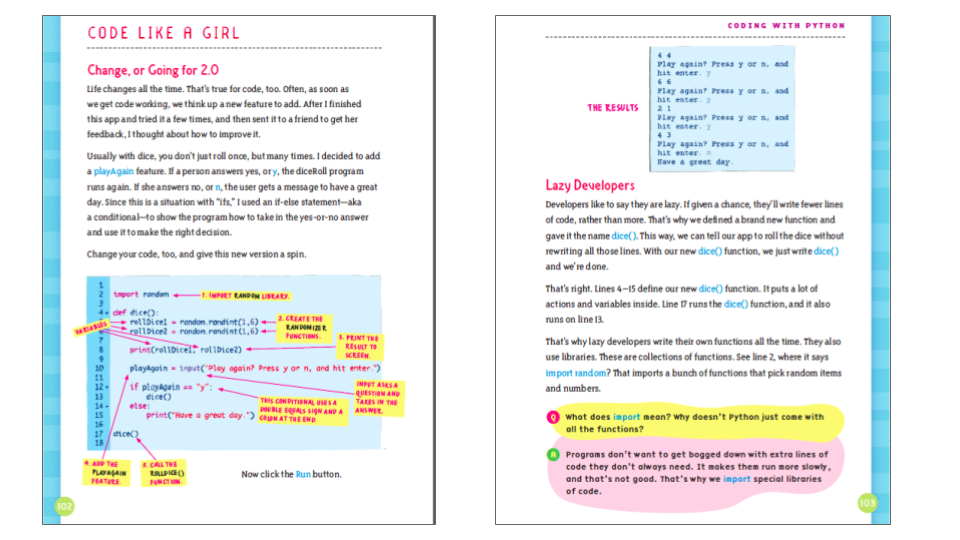
What advice do you have for anyone who wants to learn to code?
Let’s see.
-
Start anywhere
-
Don’t freak yourself out
-
Just keep going no matter what. I wasted lots of time telling myself that I should already be done, that I should have finished much more quickly
-
Really, just keep going till it clicks and feels like you've been at it forever
Why did you write this book? What was your biggest inspiration for this book?
After I wrote “The Daring Book for Girls” I worked for LEGO for a bit and then I was invited to some meetings at the Obama White House, about girls and tech, toys, and media. That's where I decided to write this book. But my inspiration was my own daughters, and seeing how they were gender minorities in the tech classes they took and how that made them like it less.
What kinds of opportunities do you think we need to create to ensure that girls can code?
I think all the clubs and special programs are great, but the real game changer would be making code a required class in 8th grade. And in 10th grade, and university, for those who attend. That way everyone jumps in, and you get past the “but wait, code is for boys” thing.
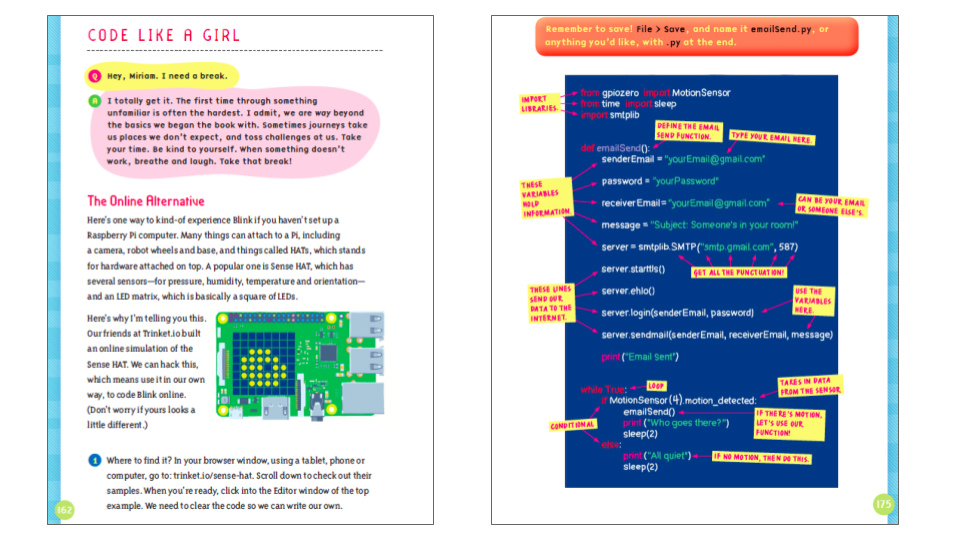
What are some organizations you'd recommend to help girls learn to code/participate in STEM?
TechGirlz and Girls Who Code. But, I'd also recommend finding a way to learn on your own, at home, because often you can't get to a workshop, or you want to follow up after a workshop and make code your thing. That's why I wrote “Code Like A Girl,” so we can learn code by ourselves, at home.
For women already in tech, how can they help mentor girls and women interested in a career in tech?
You can reach out to local schools and teach an elective or after school class, or do a workshop at a nearby library. And anyone of any gender can do this, just make sure that everyone feels welcomed and supported. Kind of like what we do at Flatiron School.
